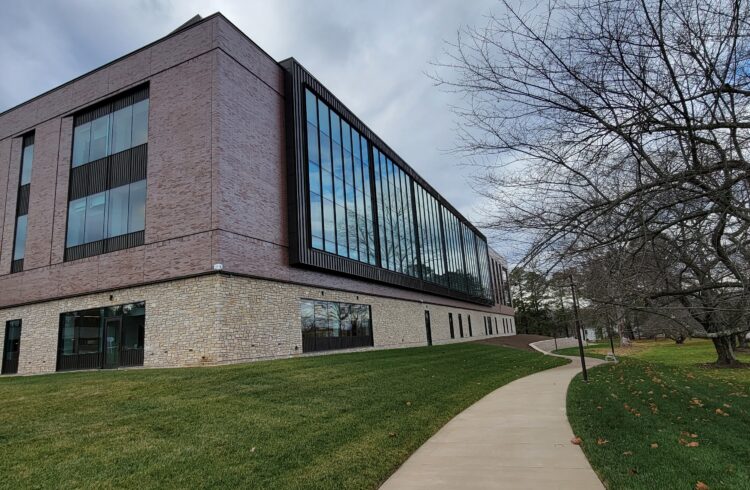
Julieanne Carter of Lynchburg, VA has a special place in her heart for the University of Virginia Health System and its Transplant Services team. In fact, she has spent so much time at UVA during the past four years that she views her caregivers as extended family.
In 2004, Julieanne was in her early twenties and went into liver failure soon after contracting auto-immune hepatitis. The liver transplant she received at UVA on Easter Sunday saved her life. Several years later, when she and husband Phillip decided to start a family, the transplant team closely managed needed changes in her immunosuppressant drugs.
“Getting pregnant is a challenge for transplant patients because the drugs they take to prevent rejection of their new organ are not safe for pregnancy,” explains Amy Roman, RN, the UVA Transplant Coordinator who supported Julieanne through her two pregnancies. “A successful pregnancy is quite a milestone for anyone who has received a transplant.”
Julieanne’s transplant surgeon, Dr. Timothy Pruett, head of UVA’s Charles O. Strickler Transplant Center and immediate past-president of the United Network for Organ Sharing (UNOS), devised a plan to convert her to a medication regimen that would enable her to conceive. Over a six-week period, she gradually stopped taking her main immunosuppressant, Cellcept, which can cause harm to unborn babies. At the same time, she slowly increased her intake of two other anti-rejection drugs, Prednisone and Prograf.
Because the medication change could have triggered a recurrence of her hepatitis or rejection of her liver, Julieanne required close monitoring and weekly lab visits to check her liver enzymes and other factors. “It was a regimented process and we were overly diligent,” Roman explains. “Julieanne and I spoke almost every day. She was so confident that we would succeed that she began buying baby clothes and nursery furniture.”
Within a month after her medication switch was completed, Julieanne became pregnant with her first son, who she named Clayson after her grandfather. The Transplant Clinic and UVA’s high-risk Obstetrics team closely supported Julieanne throughout her pregnancy. “It was a wonderful, healthy pregnancy with no complications,” says Roman. The only disappointment for Julieanne was that she couldn’t breastfeed Clayson because, right after he was born, she had to switch back to Cellcept.
Motherhood suited Julieanne, and within ten months the Carters were ready to expand their family. The UVA transplant team repeated the medication conversion process; again, Julieanne became pregnant within a month after the drug changes were completed. This time, however, serious complications developed during her second trimester. Julieanne’s platelet count dropped and she developed HELLP syndrome. HELLP is an acronym for H emolytic anemia (which causes abnormal breakdown of red blood cells), E levated L iver enzymes (which is a measure of liver damage) and L ow P latelet count (which predisposes a person to bleeding). The syndrome can cause liver failure in the mother and places a fetus at risk.
As a result of the complications, Julieanne gave birth to her second son 11 weeks early. He arrived on April 1, 2008 weighing three pounds, two ounces with a hole in his heart. Named Timothy Roman in honor of two of Julieanne’s favorite people – Tim Pruett and Amy Roman – the newborn spent his first three weeks in UVA’s Neonatal Intensive Care Unit and ten more days at Virginia Baptist in Lynchburg. During Timothy’s stay at UVA, Julieanne visited every day; Phillip made the trip whenever he had time off from work. During that month, Julieanne frequently stopped by the Transplant Clinic for support and encouragement. Pruett and Roman made trips to the NICU bearing cards and flowers.
Today, little Timothy Roman is at home and thriving; Julieanne’s platelet count and liver enzymes are normal, and she has resumed her regular drug regimen. All in all, the Carters consider parenthood a miraculous experience.
Pruett and Roman are thrilled to have a namesake – the first for each of them. However, their main focus remains on Julieanne. “We want to make sure her liver lasts an entire lifetime,” says Roman. “Julieanne only has to visit our clinic once a year, but needs to get her labs done every month. My biggest job now is to keep reminding her to do that.”


